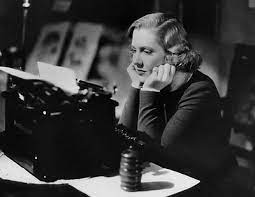
1.RESULT DIRECTION
Don’t ever tell an actor you want him to cry. If an actor is thinking about a result, it blocks the internal process that allows him to reach the emotion in an authentic way. Besides, the goal isn’t to make the actor cry, it’s to make the audience cry.
Don’t ever tell an actor you want him to cry. If an actor is thinking about a result, it blocks the internal process that allows him to reach the emotion in an authentic way. Besides, the goal isn’t to make the actor cry, it’s to make the audience cry.
2.INTERPRETATION
Actors and directors talk about “choices.” Predictable choices are boring, but arbitrary ones can be awful. Any choice is better than being “on the word.” If the dialogue’s good, it will take care of itself, but only if there's something going on underneath it.
Actors and directors talk about “choices.” Predictable choices are boring, but arbitrary ones can be awful. Any choice is better than being “on the word.” If the dialogue’s good, it will take care of itself, but only if there's something going on underneath it.
3.CHOICES (CONT.)
Going “small” is less obvious than being big, and often better. Skilled actors open a little window behind their eyes allowing the audience to glimpse their inner life and then shut it just as quickly. Such blessed creatures are why God invented the close-up.
Going “small” is less obvious than being big, and often better. Skilled actors open a little window behind their eyes allowing the audience to glimpse their inner life and then shut it just as quickly. Such blessed creatures are why God invented the close-up.
4.TECHNICAL WORK
Vocal training. Accents. Movement. Sure, such things take training and practice, but the emotional work requires ineffable talent and is more difficult and rare. Critics like the technical stuff because it's showy and describable. Gifted actors know better.
Vocal training. Accents. Movement. Sure, such things take training and practice, but the emotional work requires ineffable talent and is more difficult and rare. Critics like the technical stuff because it's showy and describable. Gifted actors know better.
5.THE INNER LIFE
Stanislavsky tells us every actor has every character buried somewhere inside him and all he must do is the “emotional work” to get there. This is easier said than done unless you’re Daniel Day-Lewis. And you’re prepared to live in the woods alone for a year.
Stanislavsky tells us every actor has every character buried somewhere inside him and all he must do is the “emotional work” to get there. This is easier said than done unless you’re Daniel Day-Lewis. And you’re prepared to live in the woods alone for a year.
6.THE SCENE PARTNER
Audiences tend not to recognize listening is a skill, but other actors always recognize its value. Acting opposite an active listener makes you better. On the other hand, there’s such a thing as selfish listening – also known as scene stealing.
Audiences tend not to recognize listening is a skill, but other actors always recognize its value. Acting opposite an active listener makes you better. On the other hand, there’s such a thing as selfish listening – also known as scene stealing.
7.INSTINCT
If a good actor is having trouble with the words, take his notes seriously. Some lack the language of criticism, yet their stomach brain knows when it’s right. If they are kissed by the angel, leave them alone and take the credit for their performance later.
If a good actor is having trouble with the words, take his notes seriously. Some lack the language of criticism, yet their stomach brain knows when it’s right. If they are kissed by the angel, leave them alone and take the credit for their performance later.
8.DAILIES
Some actors like to see dailies. Others would rather have needles stuck in their eyes. When it’s absolutely necessary to illustrate a problem, make sure your comments are constructive. If you shame an actor, you’ll lose him and his performance is toast.
Some actors like to see dailies. Others would rather have needles stuck in their eyes. When it’s absolutely necessary to illustrate a problem, make sure your comments are constructive. If you shame an actor, you’ll lose him and his performance is toast.
9.STAKES
A famous actor tells you he likes to think of himself as being chased by a shark. You understand he means it metaphorically. But when a big action star says, “how can we ratchet up the pressure on my character?” He wants a bigger shark.
A famous actor tells you he likes to think of himself as being chased by a shark. You understand he means it metaphorically. But when a big action star says, “how can we ratchet up the pressure on my character?” He wants a bigger shark.
• • •
Missing some Tweet in this thread? You can try to
force a refresh










